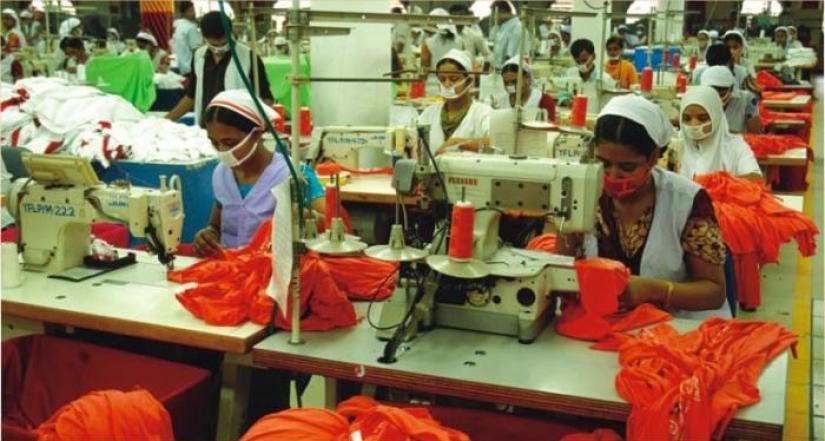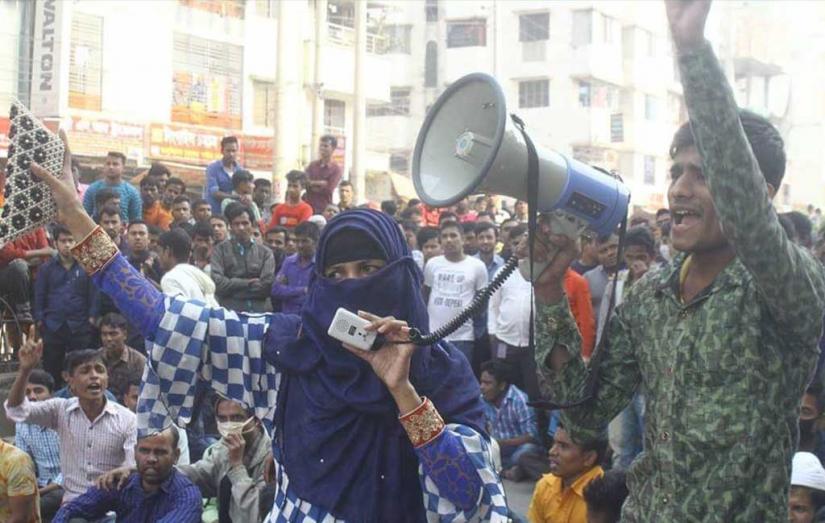 A European membership organisation set up by a group of fashion brands to improve working conditions in factories from where they source garments is investigating the treatment of workers in a factory in Bangladesh.
A European membership organisation set up by a group of fashion brands to improve working conditions in factories from where they source garments is investigating the treatment of workers in a factory in Bangladesh.
Fair Wear Foundation (FWF) said it is working with the factory, believed to be Dird Composite Textiles Ltd in Gazipur, to investigate reports that over 100 of its workers were fired in January after going on strike over low wages.
“There were some discrepancies between what FWF heard from the factory management and the complainants’ stories and their personal files,” FWF said in a statement.
“What can be shared is that the factory is in the process of paying legal entitlements, such as due salaries, provident fund and severance pay to all the workers concerned,” it said. The investigation follows reports that the factory, which produced T-shirts for Belgian firm Stanley/Stella, was challenged over low wages by some of its staff. The factory, however, insists that the workers who left resigned of their own volition.
The investigation follows reports that the factory, which produced T-shirts for Belgian firm Stanley/Stella, was challenged over low wages by some of its staff. The factory, however, insists that the workers who left resigned of their own volition.
“Stanley/Stella is very active in improving the working conditions for people who make our clothes. Just like any other FWF member, they continue sourcing from Bangladesh because they believe they can make a positive contribution to the lives of the workers there,” FWF said in its statement.
“Stanley/Stella is keeping a close watch on the situation in the factory. In the past year, they have been working with FWF to implement an anti-harassment committee there, which gives workers an opportunity to voice their complaints and resolve issues internally,” it notes.
FWF, headquartered at Amsterdam in the Netherlands, works with garment companies around the world to assume responsibility and work together with factories on improving conditions to ensure fairer conditions for the people who make clothes for the Western market.
For Bangladesh, the garment export industry is the biggest earner, accounting for 81 percent of total export earnings. It is estimated that over 7,000 factories in the country are linked to the export market.  According to FWF, labour conditions in the sector have improved significantly since the Rana Plaza tragedy in 2013, when a garment manufacturing building collapsed killing over 1,000 workers in Dhaka district.
According to FWF, labour conditions in the sector have improved significantly since the Rana Plaza tragedy in 2013, when a garment manufacturing building collapsed killing over 1,000 workers in Dhaka district.
“The current minimum wage in the garment sector of BDT 5,300 or EUR 60 per month is one of the lowest minimum wages in the world. The 2013 minimum wage law is yet to be implemented fully,” FWF notes.
The organisation said it has strengthened dialogue with its stakeholders on specific risks to the estimated 4 million workers in the sector in Bangladesh, over half of whom are women.
 Business
Business
41192 hour(s) 58 minute(s) ago ;
Morning 03:52 ; Sunday ; Jun 29, 2025
Bangladesh RMG factory investigated over treatment of workers
Send
Aditi Khanna, London
Published : 18:30, Mar 02, 2019 | Updated : 18:40, Mar 02, 2019
Published : 18:30, Mar 02, 2019 | Updated : 18:40, Mar 02, 2019
0 ...0 ...
/zmi/
Topics: Top Stories
- KOICA donates medical supplies to BSMMU
- 5 more flights to take back British nationals to London
- Covid19: Rajarbagh, Mohammadpur worst affected
- Momen joins UN solidarity song over COVID-19 combat
- Covid-19: OIC to hold special meeting
- WFP begins food distribution in Cox’s Bazar
- WFP begins food distribution in Cox’s Bazar
- 290 return home to Australia
- Third charter flight for US citizens to return home
- Dhaka proposes to postpone D8 Summit
Unauthorized use of news, image, information, etc published by Bangla Tribune is punishable by copyright law. Appropriate legal steps will be taken by the management against any person or body that infringes those laws.
Bangla Tribune is one of the most revered online newspapers in Bangladesh, due to its reputation of neutral coverage and incisive analysis.
F R Tower, 8/C Panthapath, Shukrabad, Dhaka-1207 | Phone: 58151324; 58151326, Fax: 58151329 | Mob: 01730794527, 01730794528






